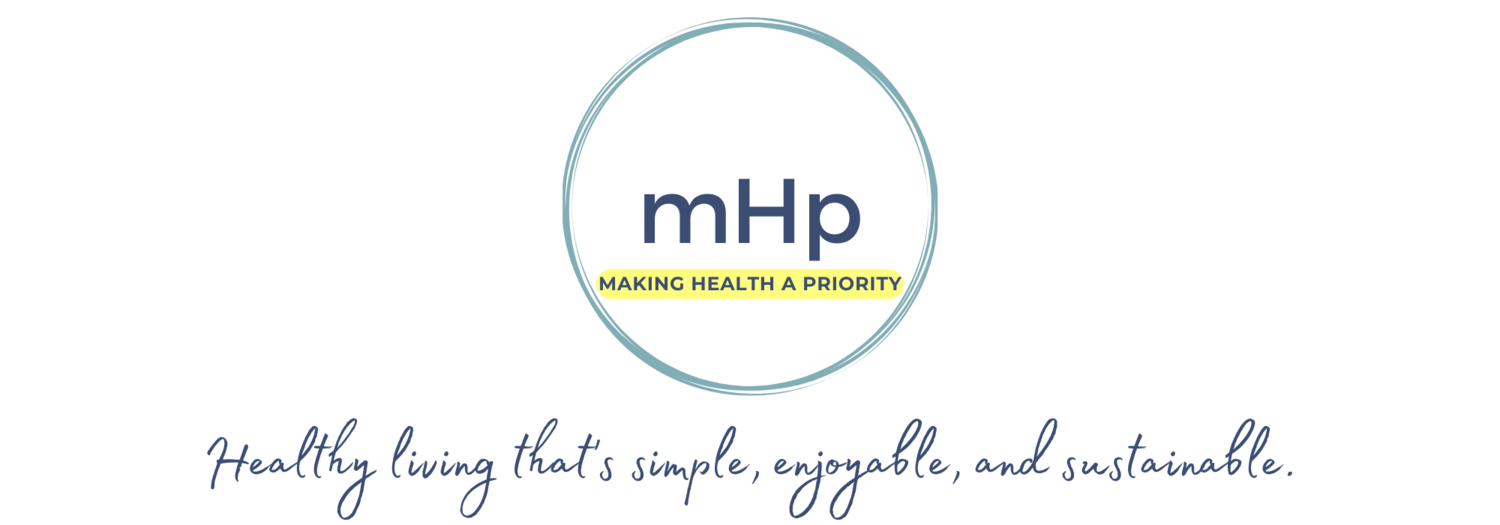Why Playing the Martyr Hurts Our Relationships (An Example from My Own Life)
A few years ago I completed the Whole Health Medicine Institute (WHMI), which was a training program for health care providers, led by Dr. Lissa Rankin, MD.
WHMI was unlike any training I had done before. It took a deep dive into what it means to be well, with a strong focus on “healing the healer.” (As I’ve written about before, we all have the ability to be healers.)
Many of the concepts I learned in WHMI are applicable to anyone who is a caregiver — such as a parent, spouse, care-giving professional, etc.
I talk to a lot of people who care for others. And a major challenge is to overcome the feeling that self-care is selfish.
Intuitively, this makes sense. After all, it’s widely accepted that “you can’t pour from an empty cup.”
But in our daily lives, where others depend on us for various things, feelings of guilt often keep us from practicing self-care. (I’ve gotten better at this, but I still struggle with it.)
On the topic of self-care not being selfish, one profound lesson I learned in WHMI is the danger of playing the martyr role.
Martyr Defined
When I say “martyr” in this context, I’m referring to someone who unnecessarily sacrifices themselves for others, while ignoring their own needs.
The “unnecessarily” part is important.
Most of us set aside our own needs, to some extent, to care for others. For example, a parent who sets aside their need for sleep in order to console a crying child in the middle of the night — I would consider this a necessary part of being a nurturing parent, and that’s not what I’m talking about here.
What I’m talking about is when we ignore our own needs when it really isn’t necessary to do so, and we do so in the name of “helping” someone else.
Why We Need to Be Careful with This Kind of “Giving”
This kind of “giving” can really hurt our relationships.
Resentment is the culprit, and it can lead to several people being hurt in the end.
Basically, it ends up playing out like this:
The giver loses. The self-sacrificing “giver” doesn’t get their needs met and becomes resentful. The resentment becomes apparent in interactions with the “recipient” and others.
The recipient loses. The recipient of the martyr’s “generosity” is left with a burden of guilt, having kept the martyr from getting their needs met.
Others lose. It’s common for the martyr’s resentment to be taken out on others.
When I learned this, it was an “aha” moment for me.
If we’re not careful, our self-sacrificing behavior can actually HURT those we care about most.
Hurting our loved ones is the last thing we want to do. So it’s important that we take this seriously.
Again… easier said than done. In fact, this exact scenario played out recently in my own life, with my daughter.
After it happened, I immediately recalled the “martyr lesson” I learned in WHMI, and I realized that the situation was a great example of what NOT to do.
As much as I hate to admit my own shortcomings in this area, I hope that my story will prevent you from making the same mistake.
A Recent Example from My Own Life
Recently my husband and I took the kids camping. We had a great time. It was a fun way for us to spend quality time together and create some wonderful memories.
The kids helping us set up the tent.
Biking around the campground. Check out the rainbow!
Days to Remember
Our kids, who are 7 and 9, are such fun ages right now. We love being active with them. Soon they probably won’t care much about hanging out with Mom and Dad, so we want to make the most of this time.
But I’ll Be Completely Honest…
After several days of being surrounded by others nonstop (even those I love dearly), I’m ready for a little time to myself. Nothing crazy — just a bit of solitude.
Refueling Time
Being an introvert, I cherish a certain amount of alone time. It’s how I refuel my tank. It makes me a nicer and more energetic person to be around.
I was able to enjoy a few minutes of quiet time once we returned home, when I got up early and had a cup of coffee while everyone else was asleep.
Imagine a relaxed and content dog, sprawled out on the grass, basking in the sunshine. That’s how I felt as I soaked up the quiet time.
Kinda like this:
Our 15 year-old “puppy” Xocko
But Not for Long…
My 9 year-old daughter awoke soon after. She came over and sat by me. I gave her a hug and told her good morning.
The first words out of her mouth were, “What are we going to do today, Mom?”
Apparently I hadn’t yet reached my minimum effective dose of quiet time and caffeine. Because I found her question annoying.
My daughter had no ill intent. She simply wondered if something was planned for the day.
To me it seemed like she expected to be entertained. And I was not in the mood for entertaining.
We had just devoted several days to fun activities — fishing, hiking, biking, campfires, etc. Wasn’t that enough entertainment for a while?
Mostly I felt irritated because I needed some time to myself. Time that didn’t involve entertaining anyone, packing or unpacking anything, preparing a meal for anyone, cleaning up after anyone, or moderating sibling arguments.
What I Should Have Done
Deep down, I knew what would help me to shake off the agitation. I wanted to go for a run or a walk. I wanted to be in the fresh air, doing something active, listening to an audiobook, thinking, and getting my head in a better place.
Movement, fresh air, sunshine, and nature — these things almost always get me in a better mood.
I wanted to do this alone.
And that’s exactly what I should have done. I should have told my husband (who was just waking up at the time) that I was going out for a run, and I’d be back within the hour. By the time he’d had coffee and caught up on the news, I’d be back and in a much better state of mind.
But that’s not what I did.
What I Did Instead
I ended up playing the martyr role. Instead of honoring my own needs, I chose the path of:
Bottling up my true feelings
Sacrificing my own needs in an attempt to make others happy — even when nobody asked me to make them happy.
I said to my daughter (from a place of obligation), “I’m going for a run. Do you want to come with me?”
Normally I love to run with my daughter. It’s a nice way for us to spend time together. She’s actually a better runner than I am, so it’s a great workout too.
But on this particular day, it wasn’t about needing a good workout. It was about needing some time alone. It was about getting myself in a better place mentally so that I wouldn’t feel agitated.
The Only Thing Getting in My Way — Me
In my case, I knew what I needed (some alone time), and I had the opportunity to get it. I simply didn’t take the opportunity.
There was only one thing getting in the way of my reaching a better emotional state, and it was me. After all, my daughter didn’t ask to come along. I asked her!
Why did I do this?
Guilt. Plain and simple. A part of me felt guilty about not taking her with me.
I really should have taken my own advice about getting rid of guilt.
Or I should have recalled this quote:
“You are not required to set yourself on fire to keep other people warm.” -Unknown
Pin It! Follow mHp on Pinterest!
But I didn’t. So what followed was a mess.
How to Turn a Nice Morning into a Hot Mess
My husband was up by this time. I knew he’d be going for a solo run later in the morning. I could feel the resentment brewing.
I let him know (rather abruptly), “At some point today I’m going to need a little time to myself.”
His response was, “Why don’t you take that time right now?” (I’m sure he was thinking, PLEASE take that time right now, and take your attitude with you!)
He was right.
So I tried to back-track with my daughter.
I said to her, “I know I asked you to go with me, but I think it would be best if I go for this run by myself. Sometimes when I don’t feel good inside, it helps me to spend some time alone. This makes me feel better and puts me in a better mood.”
She looked disappointed.
I couldn’t take it and said, “Never mind. It’s fine. Let’s go.”
As we left the house, I explained to her, “Honey, when I want to do something alone, it’s not because I don’t love you or because I don’t want to spend time with you. It’s usually because I just want to feel better, and I know that will help.”
She was quiet, and when I looked at her I saw tears in her eyes.
I said, “What’s wrong?”
She said, “Now I feel guilty.”
Why Playing the Martyr Hurts Our Relationships
This is the problem with playing the martyr role. You think you’re doing someone a favor, but you’re not. And in the end, everyone loses.
Let’s review how this happens and see how it played out in my life:
The giver loses. The self-sacrificing “giver” (me, in this scenario) doesn’t get her needs met and becomes resentful.
The recipient loses. The recipient (my daughter, in this case) is left with a burden of guilt that she didn’t ask for.
Others lose. It’s common for the martyr’s resentment to be taken out on others (my husband, in this case).
How to Avoid this Mess
Avoiding this kind of situation involves two things (that I clearly didn’t do well):
Being authentic - being true to ourselves, paying attention to our own needs, living in alignment with our values and desires
Being honest - being truthful with others, being clear about our needs, not expecting others to read our minds
Pin It! Follow mHp on Pinterest!
How Things Turned Out
In the end, my daughter and I went for a short run, then I went out by myself afterward. My husband’s run got pushed back because of this unnecessarily-complicated ordeal. The whole situation was tainted by lingering disappointment of how things unfolded.
Quick Recap of Where I Went Wrong (So You Can Avoid This)
Had I been authentic and honest, I would have:
Gone for a run by myself.
Benefited emotionally from the self-care.
In turn benefited others by being a better version of myself — offering more patience, kindness, and true generosity to my loved ones once I returned home in a better state of mind.
Saved myself time, hassle, and heartache.
But because I failed to do this, I:
Wasn’t able to fulfill a personal need.
Felt bad.
Made others feel bad.
Turned something small into a big deal.
We Have a Choice.
My recent experience down “Martyr Lane” reminded me why I need to steer clear of this path… for the sake of myself and those I care about.
The good news is that we have a choice in situations like this. We can choose the path of unmet needs, bottled up feelings, and self-sacrificing resentment (a path where everyone loses in the end)…
Or we can choose to take care of ourselves, by living authentically and honestly. With our needs met, there is no pent-up resentment or bitterness, and we are able to give from a place of abundance and true desire — not obligation or guilt. In other words, we can choose a path where everyone wins in the end.
How About You?
Do you ever make the mistake of detouring down Martyr Lane? :) Please leave a comment!
This post was originally published on 7/11/19.














